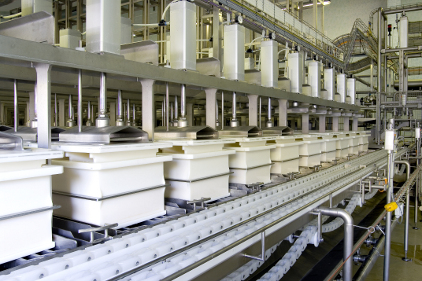 By Jay Deakins, Deacom Inc.
By Jay Deakins, Deacom Inc.
Dairy manufacturing plants are strictly regulated at federal, state, and regional levels to ensure food safety procedures are used throughout the manufacturing process. As regulations grow increasingly complex, it is ever more important for dairy manufacturers to choose the correct Enterprise Resource Planning (ERP) software to manage their processes. There is no room for human error when the cost of one mistake could lead to a food recall, illness and in extreme cases death.
When choosing a new ERP system, look for a solution with built-in features specifically for highly regulated industries such as dairy, in addition to the traditional ERP functionalities.
Recipe Management
A robust and scalable recipe management solution is a requirement for all dairy manufacturers. When native to the ERP solution, changes to formulas immediately impact inventory, production requirements and planning in the system. When dynamically scaled, the recipe can be made to match the batch size, thus meeting current demand levels, optimizing ingredient usage, and tracking all ingredient costs. To ensure compliance with regulatory bodies, users need to be able to track revisions to formulas, understand by individual batch exactly how a product was made, monitor any changes in quality, quantity and location, and provide an audit trail throughout the revisions.
Rigorous QC & Stability Testing
An ERP system designed for highly regulated industries will provide complete flexibility to manage how often QC tests are performed, what is tested – whether it is a group of items from a specific vendor, multiple lots of items or individual ingredients – and what amounts are tested. Test results are then documented for reporting, tracking and forecasting. The system automatically put lots in inventory on quality hold until the testing results are entered into the system, preventing failed items from entering the manufacturing process. Incremental testing of inventory ensures quality over time. When managed by the ERP system specified retest periods for both raw materials and finished goods could be documented, tracked and reported on.
Native Warehouse Management System (WMS)
Using bar-code technology, scanners should provide the ability to update the ERP system at any stage of the process, greatly reducing the chance of warehouse errors while improving productivity. WMS should allow users to instantly track changes and report on inventory status through multiple facilities, providing users transaction processing with tight controls on lot tracking. When used correctly, WMS is one of the few tools that can both reduce operating costs and improve process control.
Batch Tickets
Batch tickets govern the production process. The best-fit ERP solution will provide individual batch tickets that can be modified to include sign off and QC tests for every phase of production. Additionally, these batch tickets should be archived in the system and easily accessible in case of FDA audit.
Regulatory Reporting
Organizations need the ability to configure their own real-time regulatory reports based on item masters and formulations setup in the system. The ERP solution should have the flexibility to handle a wide range of regulatory reporting requirements and provide COA documents quickly and easily at the point of shipment.
There are a number of ERP systems on the market today, selecting the one that is best for your company is a daunting task. It is also a task that cannot be left to chance. Selecting a solution that needs to be heavily customized to meet your industry requirements is a recipe for disaster.
About the Author
Jay Deakins is the founder and President of Deacom, Inc. Headquartered in Wayne, PA, Deacom, Inc. is the producer of DEACOM, a complete Enterprise Resource Planning (ERP) system for process manufacturers with difficult-to-handle requirements. The DEACOM System seamlessly links all departments within a manufacturing company, providing a comprehensive view of the entire operation. By making complex issues simple, Deacom helps streamline manufacturing business processes to maximize productivity and profitability.
Prior to establishing Deacom, Inc., Jay Deakins founded and served as President of The Sun and Earth Company, a manufacturer of all-natural cleaning products distributed through national supermarket chains and other mass merchants. Among other duties at Sun and Earth, Deakins led the development of software to manage all operations of the business. Through this process, Deakins learned firsthand the many pitfalls of internal software creation within a manufacturing company. As a direct result of this experience, Deakins formed Deacom in 1995, a producer of innovative software for manufacturing companies.

